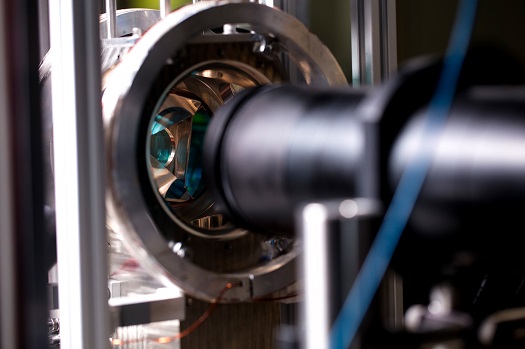The UK’s first industrial quantum gravimeter, a gravity-measuring device that detects and measures atomic interference, has been demonstrated as part of a collaborative UK-based quantum technology project being carried out by the University of Birmingham and photonics technology firm M Squared.
The Anagram project is co-funded by Innovate UK and is part of the UK National Quantum Technologies Programme.

The quantum gravimeter grants unprecedented levels of precision when performing gravitational measurements to detect the gravitational fields of hidden objects (Credit: M Squared)
According to the project researchers, the device could be crucial for paving the way towards new applications in many sectors, such as the detection of new oil and gas deposits, surveying unknown underground infrastructures, monitoring the water table, preventing flooding and geological surveying.
The use of quantum technology enables unprecedented levels of precision when performing gravitational measurements to detect the gravitational fields of hidden objects. The gravimeter achieves this by being able to detect and measure atomic interference, a manifestation of wave-particle duality that matter displays when in a quantum state at temperatures just above absolute zero.
‘Quantum gravimetry will bring a range of economic, social and environmental benefits in the coming years,’ remarked Dr Graeme Malcolm OBE, CEO and co-founder of M Squared. ‘Applications can be envisaged in many sectors, from the detection of new oil and gas deposits, surveying unknown underground infrastructures such as pipes and cables, even monitoring the water table. If we can transfer the technology into accurate seismic mapping, it could be used to predict natural disasters ranging from avalanches and volcanic eruptions to tsunamis.’
M Squared is also currently working with a research group at Imperial College London as part of ‘Polaris’, a project focused on developing another UK first – a commercial quantum 3D inertial sensing device (accelerometer). This would measure acceleration using atom interferometry, which could pave the way towards high-precision satellite-free navigation for use in mining, shipping and other transport means where GPS is hindered by dead areas and the effects of terrain and weather.
‘Partnerships such as these are vital to the successful realisation of applications that can and should make a difference in the real world,’ Malcolm commented. ‘Introducing devices such as these to the commercial market is a significant step towards bringing quantum technology into the real world. The huge promises of quantum technologies are already starting to become tangible.’
Polaris is also part of the UK Quantum Technology Programme and is co-funded by Innovate UK and the UK Defence Science and Technology Laboratory (DsTL).
Quantum technologies was a distinct focus of this year’s Laser World of Photonics show in Munich. As the European Commission prepares ground for a €1 billion flagship funding programme, set to launch in 2018 and last for 10 years, the photonics community is readying its support for quantum science and quantum-based products.

